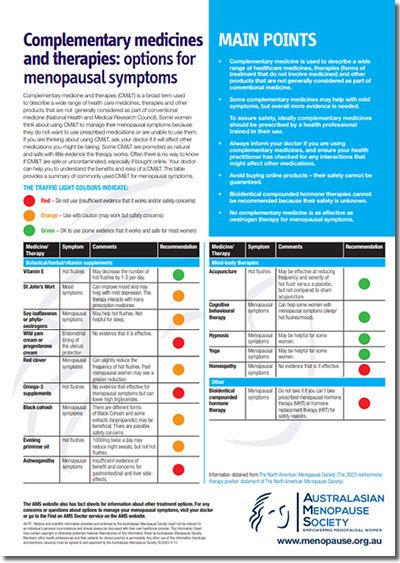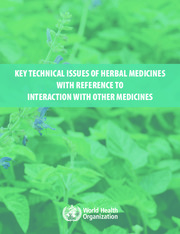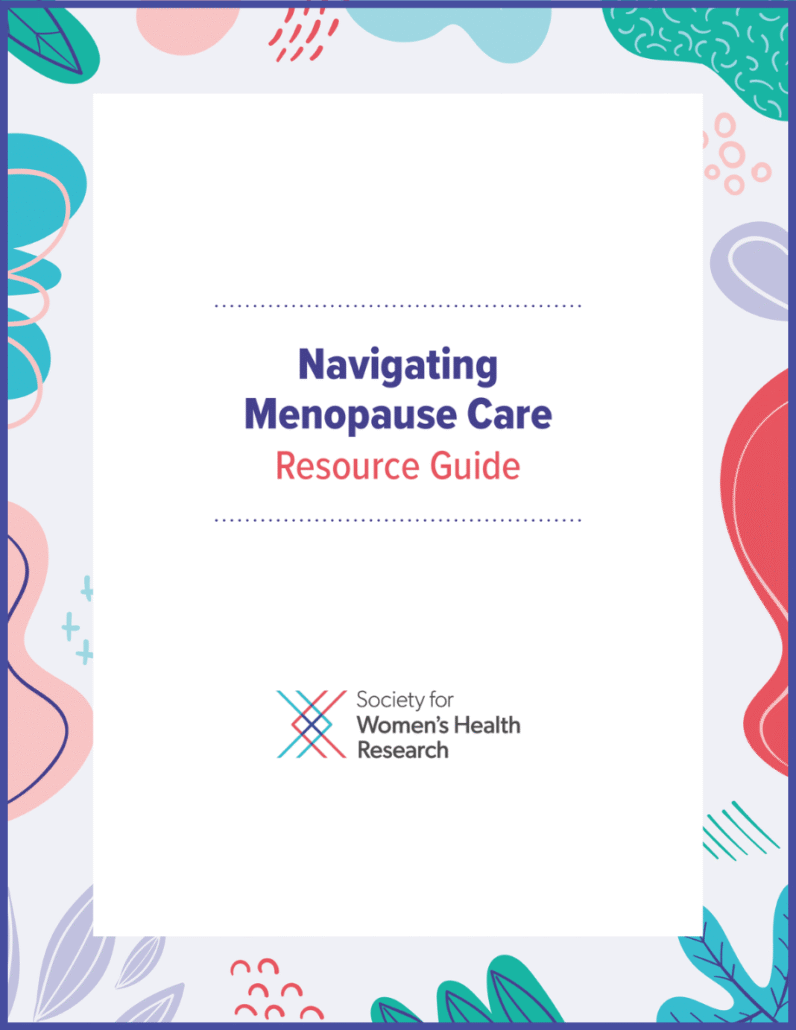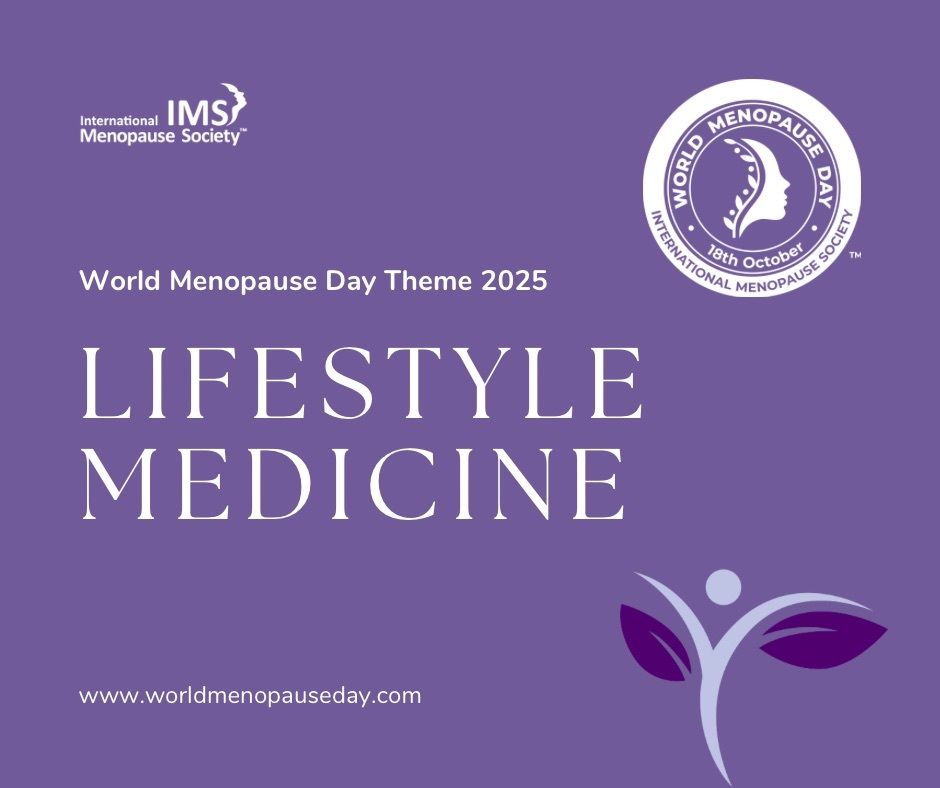“Herbal medicines are those
with active ingredients made from plant parts,
such as leaves, roots or flowers”.1
Umbrella
What may the Herbs for Menopause Umbrella include?
Depending on the Source (DotS) this Umbrella may include:
- Botanical Products
- Botanicals
- Chinese Medicine
- Herbal Medicines/Products/Remedies/Supplements/Therapies/Treatments
- Herbs
- Medicinal Herbs
- Phytomedicines
- Phytotherapy
- Traditional Chinese Medicine (TCM)
Botanical
What is a botanical?
DotS the definition of a botanical may vary. The (United States) Office of Dietary Supplement’s (ODS) definition is:
“A botanical is a plant or plant part valued for its medicinal or therapeutic properties, flavor, and/or scent”.2
Herbs
What are herbs?
DotS the definition of herbs may vary. In Botanical Dietary Supplements – Background Information: What Is A Botanical? the ODS’s definition is:
“Herbs are a subset of botanicals”.3
Different Herbs
What are some different herbs?
DotS different herbs may include:
- Black Cohosh (Actaea Racemosa, Cimicifuga Racemosa)
- Complementary Medicines & Therapies (CM&T)
- Dong Quai (Angelica Sinensis)
- Evening Primrose/Evening Primrose Oil (Oenothera biennis)
- Flaxseed/Flaxseed Oil
- Ginkgo Biloba
- Ginseng (Panax Ginseng or Panax Quinquefolius)
- Kava/Kava Kava (Piper Methysticum)
- Red Clover (Trifolium Pratense)
- Soy
- St John’s Wort
Herbal Products
What are herbal products?
DotS the definition of herbal products may vary. The ODS’s definition is:
“Products made from botanicals that are used to maintain or improve health are sometimes called herbal products, botanical products, or phytomedicines”.4
Herbal Medicines
What are herbal medicines?
DotS the definition of herbal medicines may vary. In Traditional, Complementary and Integrative Medicine: Herbal Medicines the World Health Organization’s (WHO) definition is:
Traditional Medicine
What is traditional medicine?
DotS the definition of traditional medicine may vary. In Traditional, Complementary and Integrative Medicine: Traditional Medicine the WHO’s definition is:
Menopause Symptoms
Do herbs help with menopause symptoms?
In Complementary Medicines and Therapies: Options for Menopausal Symptoms, published 05 September 2025, the Australasian Menopause Society note:
Hot Flushes and Night Sweats
Do herbs help with hot flushes and night sweats or vasomotor symptoms (VMS)?
On page two in Nonhormone Treatments for Hot Flashes and Night Sweats: Nonhormone Treatment Options – Not Recommended, dated 2023, the North American Menopause Society (NAMS) (now the Menopause Society) explain:
There are many dietary supplements available over the counter and advertised as remedies for relief of hot flashes and night sweats. There are limited studies showing that these supplements are effective at relieving VMS, and there is a lack of government regulation ensuring their safety and purity, so none of these are recommended treatments for hot flashes and night sweats”.8
In The 2023 Practitioner’s Toolkit for Managing Menopause: Management – Non-hormonal Options With Evidence To Support Efficacy, published online 01 December 2023, the authors also note:
Safe or Not
Are herbs safe?
In FDA: 101: Dietary Supplements – What Are the Risk of Dietary Supplements? the (United States) Food and Drug Administration caution:
Many supplements contain ingredients that can have strong effects in the body. Additionally, some supplements can interact with medications, interfere with lab tests, or have dangerous effects during surgery. Your health care professional can help you decide what supplement, if any, is right for you”.10
Health Care Provider
What if I choose to use herbs for menopause?
In Herbal Medicines the (United Kingdom) NHS note:
On page two in Nonhormone Treatments for Hot Flashes and Night Sweats: Nonhormone Treatment Options – Not Recommended the NAMS explain:
Health Topics A-Z
Where may I find Health Topics A-Z related to Herbs for Menopause?
In Health Topics A-Z you may find:
Links
Where may I find Links related to Herbs for Menopause?
Your Country may have Links similar to:
Links
This Links List to third party websites is neither comprehensive nor exhaustive. Inclusion on this Links List does not imply endorsement or recommendation. Non-inclusion on this Links List does not imply non-endorsement or non-recommendation. Third party websites are not under the control of Meno Martha International Menopause Directory. Third party websites may contain explicit medical images and/or sexual references. Please read Meno Martha International Menopause Directory’s Links Policy before proceeding to a Link. Please contact Webmaster if you experience a problem with a Link.New or Updated
- Complementary & Alternative Therapies: Non-Hormonal Treatments for Menopause Symptoms [November 2025]
- Complementary Medicines and Therapies for Hot Flushes [22 September 2025]
- Complementary Medicines and Therapies: Options for Menopausal Symptoms [05 September 2025]

- Integrative Medicine: Find Out What Works [23 August 2025]
- International Menopause Society (IMS) Recommendations and Key Messages on Women’s Midlife Health and Menopause [23 December 2025]
- Supplements: What Works, What Doesn’t and the Truth About Menowashing [08 June 2025]
- ACOG Explains: Managing Menopause Symptoms [American College of Obstetricians and Gynecologists]
- Anxiety and Natural Therapies
- BMS TV: Complementary and Alternative Therapies
- Bioidentical Hormones: Are They Safer?
- Botanical Dietary Supplements – Background Information
- Botanical Supplement Fact Sheets
- Can Hot Flashes Be Managed Through Diet?
- Complementary & Alternative Therapies: Non-Hormonal Treatments for Menopause Symptoms
- Complementary Medicines and Therapies for Hot Flushes
- Complementary Medicines and Therapies: Options for Menopausal Symptoms

- Consumer Video and Podcast Series: 2023 Consumer Videos and Podcasts – NAMS 2023 Nonhormone Therapies Position Statement for Bothersome Menopause Symptoms
- Consumer Video and Podcast Series: 2024 Consumer Videos and Podcasts – Preparing for Your Menopause Health Care Visit
- Did You Know? Supplements and Medications Can Interact In Unexpected Ways
- Dietary Supplements
- Dietary Supplements
- Dietary Supplements
- Dietary Supplements [Topics]
- Dietary Supplements: What Is Safe? Common Misconceptions About Dietary Supplements
- Dietary Supplements: What You Need To Know
- Drugs and Supplements: Herbs, Supplements and Vitamins [Topics]
- Efficacy of Plant-Derived Dietary Supplements In Improving Overall Menopausal Symptoms In Women: An Updated Systematic Review and Meta-Analysis
- FDA 101: Dietary Supplements
- Find A Menopause Practitioner [United States and Other]
- Find A Practitioner [Australasian Menopause Society i.e. Australia and New Zealand]
- Find Your Nearest BMS Menopause Specialist [British Menopause Society]
- Frequently Asked Questions (FAQ)
- Handling Hot Flushes and Night Sweats| Dr Louise Newson
- Herbsociety.org [Herb Society of America]
- Herbal Medicines
- Herbs and Supplements [Topics]
- Hot Flashes
- Hot Flushes, Night Sweats, Brain Fog? Here’s What We Know About Phytoestrogens for Menopausal Symptoms
- How To Find Relief for Hot Flashes At Night
 Integrative Medicine: Find Out What Works
Integrative Medicine: Find Out What Works- Is Kratom Safe To Use?
- Is It Safe To Use Herbal Weight Loss Supplements?
- International Menopause Society (IMS) Recommendations and Key Messages on Women’s Midlife Health and Menopause
- Joint Position Statement By the British Menopause Society, Royal College of Obstetricians and Gynaecologists and Society for Endocrinology on Best Practice Recommendations for the Care of Women Experiencing the Menopause
- Key Technical Issues of Herbal Medicines With Reference To Interaction With Other Medicines
- Later Years (Around 50 Years and Over): Menopause and Post Menopause Health – Treating Menopause Symptoms [Other Languages and Formats] [+ Video: Does the Menopause Happen Suddenly?]
- Let’s Talk About Perimenopause
- Lots of Women Try Herbs Like Black Cohosh for Menopausal Symptoms Like Hot Flushes – But Does It Work?
- Mayo Clinic Q and A: Dietary Supplements Useful In Some Situations, But Also Can Be Harmful
- Menopause Map: Downloadable Resources – My Personal Path Print Tools: Questions for Your Health Care Provider

- Menopause Symptoms: Mayo Clinic Expert Outlines Hormone and Nonhormonal Therapies
- Menopause Treatments: What Works, What Doesn’t
- Menopause, Perimenopause, Hormone Therapy and Other Treatments With Madelyn Butler, MD [Podcast]
- Menopause: Things You Can Do
- NatMed
- National Center for Complementary and Integrative Health
- National Center for Complementary and Integrative Health: 4 Tips: Start Talking With Your Health Care Providers About Complementary Health Approaches
- National Center for Complementary and Integrative Health: 6 Things To Know When Selecting A Complementary Health Practitioner
- National Center for Complementary and Integrative Health: Black Cohosh
- National Center for Complementary and Integrative Health: Dietary and Herbal Supplements
- National Center for Complementary and Integrative Health: Ginkgo
- National Center for Complementary and Integrative Health: Green Tea
- National Center for Complementary and Integrative Health: Herbs At A Glance
- National Center for Complementary and Integrative Health: How Safe Is This Product or Practice?
- National Center for Complementary and Integrative Health: Natural Doesn’t Necessarily Mean Safer, or Better
- National Center for Complementary and Integrative Health: Placebo Effect
- National Center for Complementary and Integrative Health: Red Clover
- National Center for Complementary and Integrative Health: Soy
- National Center for Complementary and Integrative Health: St. John’s Wort
- National Center for Complementary and Integrative Health: Valerian
- Natural Remedies To Help Manage Perimenopause Symptoms
- Natural Therapies
- Navigating Menopause Care Resource Guide

- Nonhormone Treatments for Hot Flashes and Night Sweats
- Office of Dietary Supplements
- Office of Dietary Supplements: Dietary Supplement Fact Sheets
- Office of Dietary Supplements: My Dietary Supplement and Medicine Record
- Phytoestrogens
- Questions and Answers on Dietary Supplements
- SAMe
- Second WHO Global Summit on Traditional Medicine
- Should You Try An L-Tyrosine Supplement? A Look at Its Benefits and Side Effects
- Supplements: What Works, What Doesn’t and the Truth About Menowashing
- The Power of the Placebo Effect
- Tips To Help Manage Menopause Symptoms
- Traditional Medicine
- Traditional, Complementary and Integrative Medicine
- Treatments for Menopause: Natural Therapies for Menopause
- Vaginal Dryness Alternative Treatments
- WHO Global Traditional Medicine Centre
- WHO Global Summit Charts A Bold Future for Traditional Medicine
- WHO International Standard Terminologies on Traditional Chinese Medicine
- Webinars: Lifestyle Medicine
- Webinars: Non-Hormonal Pharmacological Interventions For VMS
- Webinars: Non-Pharmacological Interventions For VMS
- Webinars: Symposia – What’s Hot? Options for Treatment of Hot Flushes 2025
- What Are Adaptogens and Are They Healthy?
- What Can I Do To Help With Hot Flashes?
- What Is Traditional Chinese Medicine?
- Wild Yam
- World Menopause Day 2025 [18 October]

Sources
Where may I find the Sources quoted?
You may find the Sources quoted at:
Sources
- Herbal Medicines. Page Last Reviewed: 18 October 2022. NHS https://www.nhs.uk/conditions/herbal-medicines/ Accessed: 04 January 2026
- Botanical Dietary Supplements – Background Information: What Is A Botanical? Updated: 11 December 2020. Office of Dietary Supplements https://ods.od.nih.gov/factsheets/BotanicalBackground-Consumer/ Accessed: 04 January 2026
- Botanical Dietary Supplements – Background Information: What Is A Botanical? Updated: 11 December 2020. Office of Dietary Supplements https://ods.od.nih.gov/factsheets/BotanicalBackground-Consumer/ Accessed: 04 January 2026
- Botanical Dietary Supplements – Background Information: What Is A Botanical? Updated: 11 December 2020. Office of Dietary Supplements https://ods.od.nih.gov/factsheets/BotanicalBackground-Consumer/ Accessed: 04 January 2026
- Traditional, Complementary and Integrative Medicine: Herbal Medicines. World Health Organization https://www.who.int/health-topics/traditional-complementary-and-integrative-medicine#tab=tab_1 Accessed: 04 January 2026
- Traditional, Complementary and Integrative Medicine: Traditional Medicine. World Health Organization https://www.who.int/health-topics/traditional-complementary-and-integrative-medicine#tab=tab_1 Accessed: 04 January 2026
- Complementary Medicines and Therapies: Options for Menopausal Symptoms – Main Points. Published 15 April 2025. Australasian Menopause Society https://www.menopause.org.au/health-info/fact-sheets/complementary-medicines-and-therapies Accessed: 04 January 2026
- Nonhormone Treatments for Hot Flashes and Night Sweats: Nonhormone Treatment Options – Not Recommended. 2023:2. North American Menopause Society https://menopause.org/wp-content/uploads/default-document-library/nonhormone-treatment-menonote_f5afc19f-211e-4c1f-8a04-b2d558c6fa66.pdf Accessed: 04 January 2026
- Davis, S. R., Taylor, S., Hemachandra, C., Magraith, K., Ebeling, P. R., Jane, F., and Islam, R. M. The 2023 Practitioner’s Toolkit for Managing Menopause: Management – Non-hormonal Options With Evidence To Support Efficacy Published Online: 01 December 2023 https://www.tandfonline.com/doi/full/10.1080/13697137.2023.2258783 Accessed: 04 January 2026
- FDA 101: Dietary Supplements – What Are the Risks of Dietary Supplements. Content Current As of: 02 June 2022. Food and Drug Administration https://www.fda.gov/consumers/consumer-updates/fda-101-dietary-supplements Accessed: 04 January 2026
- Herbal Medicines. Page Last Reviewed: 18 October 2022. NHS https://www.nhs.uk/conditions/herbal-medicines/ Accessed: 04 January 2026
- Nonhormone Treatments for Hot Flashes and Night Sweats: Nonhormone Treatment Options – Not Recommended. 2023:2. North American Menopause Society https://menopause.org/wp-content/uploads/default-document-library/nonhormone-treatment-menonote_f5afc19f-211e-4c1f-8a04-b2d558c6fa66.pdf Accessed: 04 January 2026







